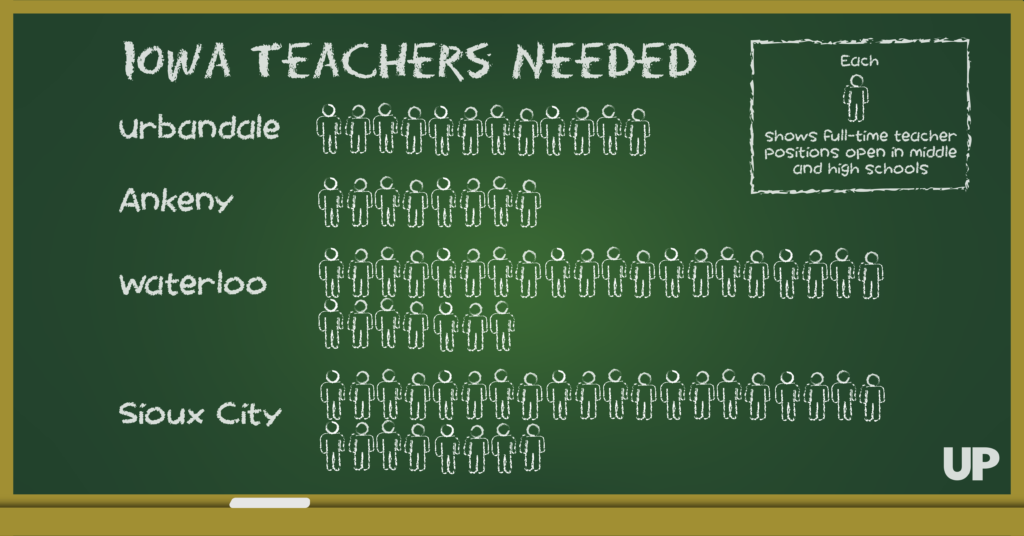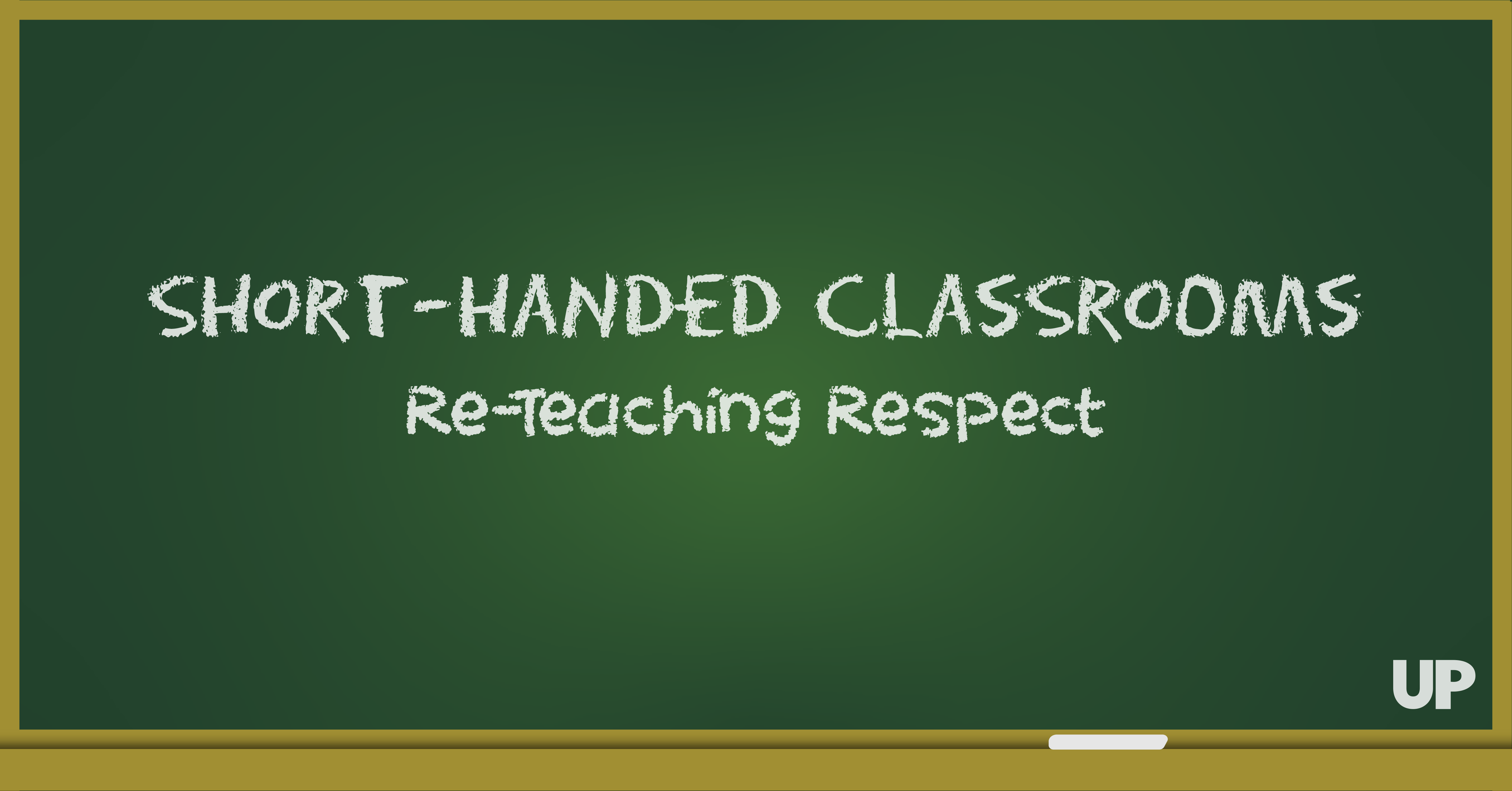This Next Generation of teachers is Re-teaching Respect.
If covid has taught this country anything, it’s that a lot can happen in a year or two. This rings true for school systems, as we’ve seen a number of teacher shortages across Iowa.
Many schools are struggling to keep teachers and substitutes in the buildings. Just five months ago, Iowa City schools rang in the start of the new year with 13% of employees and 20% of paraeducators absent during the first week of school, according to an Iowa City Press-Citizen article.

Many educators, like first-time Spanish teacher Madison Buckley, are feeling an array of emotions—from shock to confusion—in response to fewer teachers and staff in the classrooms.
“I wasn’t really too surprised by the shortage,” Buckley says. “It kind of happened while I was in the middle of my degree, so if I’m going to be honest, I was kind of selfish. I was like, ‘Okay, great! I’ll have a job.’ But it did make me a little curious. I’m like ‘Okay, what’s going on in schools that I’m not seeing to make all these teachers leave?’”
What’s going on is that educators are taking issue with the way they are being treated, with concerns including pay and funding.
If you’re familiar with the teacher strikes that have been happening in Arizona and Colorado for these same issues, you might question why we haven’t seen any strikes in Iowa. Under Iowa law, public employers are prohibited from condoning a strike or paying employees for days spent participating in strikes or walkouts. In other words, if public Iowa educators are caught demonstrating at walkouts, protests, or strikes of any kind, harsh penalties, such as fines or even jail time, will be imposed.
‘It’s so stressful,” says Brannon Roger, a behavior specialist education teacher at Hiatt Middle School. “The issues are pretty universal. I’ve talked to other teachers, and they have the same problems—the lack of respect, little funding, that kind of stuff.”
Incoming teachers are affected by the strikes in the midwest and shortages too. Their expectations of schools change as they prepare for life in the classroom. The idea of being able to teach the way they see fit is not an option for some teachers. For example, Buckley’s plan to teach about immigration did not happen this semester.
“We ended up not talking about immigration this year,” Buckley says. “Because of the political climate right now we just couldn’t have that in our school, we couldn’t take that risk. So the fact that discussions are meant to open minds or help others understand others’ point of view. Those just can’t even take place anymore.”
Carmen Winters, a retired Iowa teacher who has taught for 42 years, has seen this change in attitude towards entering the field of education firsthand. According to Education Week, from 1980-1985, there was a decrease in the hundreds of people with bachelor and master degrees in education.
“I love teaching. I always have, but a lot of college students were not going into teaching,” Winters says.
The motivation to pursue teaching degrees in Iowa are dwindling due to fears about working conditions and pay according to the website Education Week. This can also affect how teachers interact with students.
“I think one of the biggest problems facing these kids is that they don’t feel connected when they go to school,” Buckley says. This disconnect comes from more and more curriculum being taught to students in conjunction with teachers coming and going.
For educators like Roger, there’s a final problem: the lack of empathy from the administration. His frustration comes from forced added lesson plans and little ease and recognition of current workload.
“The administrators add [curriculum] for us to do but don’t ever take things away,” Roger says.
Until there are changes within the administrative and government levels, Roger believes the teacher shortage will remain a problem.
“Sadly, this could be the ‘new norm,’” Roger said. “It’s highly unlikely, but it is possible to bring respect back into the profession.”

